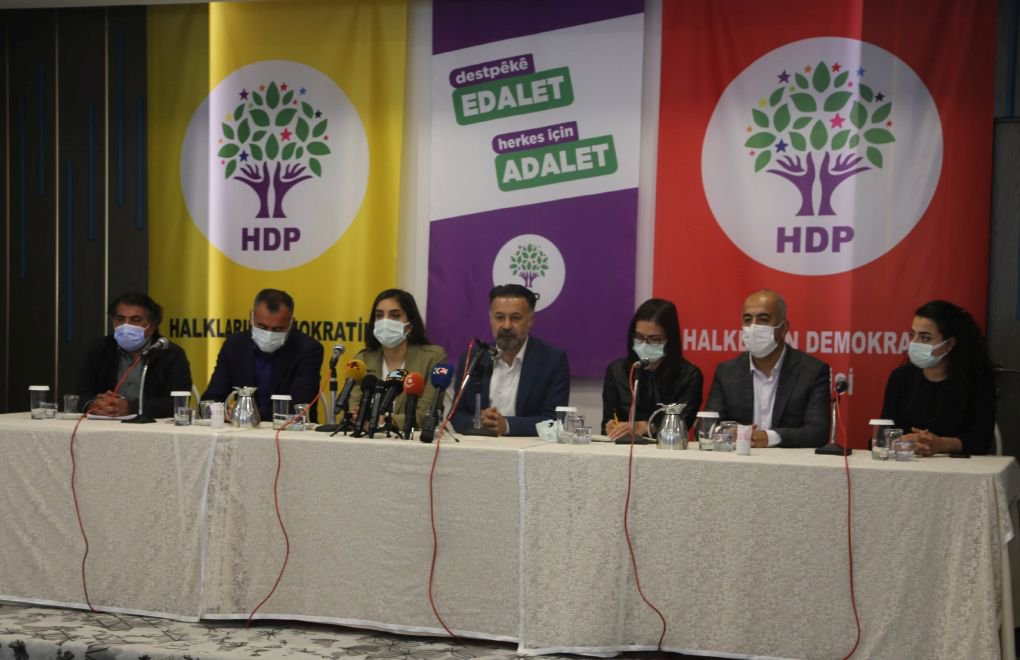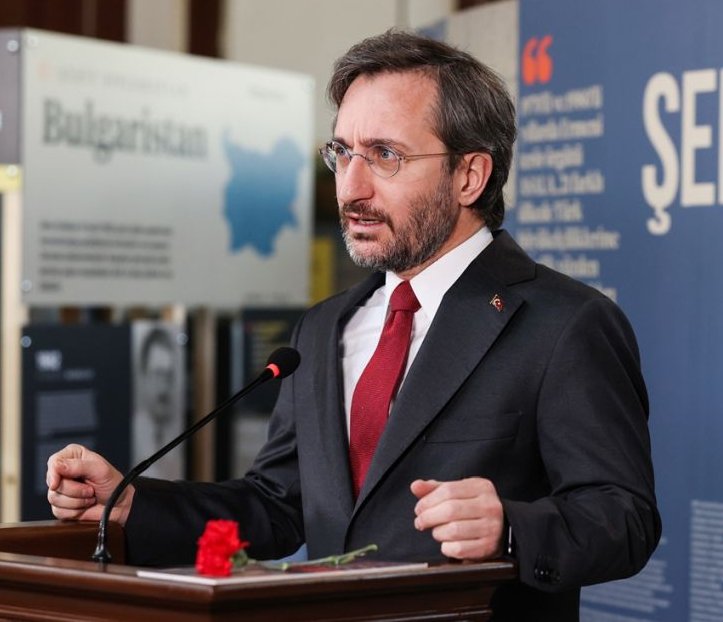Photo: HDP
Click to read the article in Turkish / Kurdish
Peoples' Democratic Party (HDP) Deputy Co-Chair Responsible for Law and Human Rights Affairs Ümit Dede and Kobanî case lawyers have held a press conference about the case, the first hearing of which was held yesterday (April 26).
Some 108 HDP members, including its former MPs and co-chairs, are facing aggravated life sentences for organizing the 2014 protests in Kurdish-majority regions of the country.
The protests had erupted after an ISIS offensive into Kobanî, a Kurdish town in northern Syria. The HDP politicians are charged with orchestrating the protests upon an order by the outlawed Kurdistan Workers' Party (PKK).
CLICK - Kobanî trial: Request for recusal rejected
Ümit Dede said yesterday's hearing went down in history as "a trial of shame": "Upon the instruction they got, the court president and the court board had an attitude ignoring the defending part in the trial."
Cahir Kırkazak, an attorney of the HDP's imprisoned former co-chair, said that they called on the court board to be independent.
"We conveyed that the hearing cannot start without the presence of the defenders of the people who were present at the courtroom. But the presiding judge didn't listen to us and turned his back to us.
"At the end, we said that the hearing cannot start without the attorneys being let in, there are defenders who are obliged to be in the courtroom and we would leave the hall if our colleagues didn't come. The presiding judge, if I may say so, showed us the door.
"While the attorneys should have communication with those who stand trial at all stages of the trial, security officers lined up in two rows between us and our friends in the hall.
"The presiding judge forced the defendants to sit down, and, in a sense, the statements they didn't make were recorded as if they made them.
"The presiding judge didn't give the floor to those who attended the hearing via SEGBİS [Audio and Video Information System] as he turned their volume down. As attorneys, we left the hall because we didn't want to be a part of this distortion."
"The inquisition"
Veysi Eski, an attorney of former HDP Co-Chair Figen Yüksekdağ, said the situation was "absurd."
"Despite saying that he knew the Law on Criminal Proceedings very well, the presiding judge never implemented it," he said.
Attorney Cemilr Turhallı Balsak said, "As of yesterday, we once again saw that this ... is a special en extraordinary trial. There are many examples of special trials in history, and these trials always have a special agenda."
Attorney Cihan Aydın said the indictment of the case was one that was "prepared in a laboratory environment."
"We don't have a three-people court board against us. We have the state mechanism itself. The right to defense was destroyed in this case. The defense was ignored and silenced.
"Often happened in Middle Age Europe, the authority of accusation, defense and decision are concentrated in a single person and this person is the presiding judge, we are facing a similar picture now. We are facing a judicial practice from almost 500 years ago."
About Kobanî protestsIn September 2014, ISIS, which controlled a large territory in Syria at the time, launched an offensive to Kobanî, a Kurdish town in northern Syria, near the country's border with Turkey. In late September, a group of people went to Suruç, a town neighboring Kobanî in the predominantly Kurdish city of Urfa, and attempted to cross the border. Police prevented them, using tear gas and rubber bullets. Pictures allegedly showing ISIS militia crossing into Syria were published on the same days. Also, President Recep Tayyip Erdoğan made statements indicating that they equated the PKK with ISIS. While the wounded coming from Kobanî were kept waiting on the border, the wounded from ISIS were treated at hospitals. Several news reports were reported in the press, saying "Kobanî fell." These news reports were denied every time. After the HDP made a call to take to the streets against a possible massacre in Kobanî, thousands of people protested in Kurdish-majority provinces as well as Ankara and İstanbul. While left parties also supported these protests, deaths also occurred with the onset of police violence. Street conflicts ensued. 42 people lost their lives from October 6 to 12, 2014. According to a report by the Human Rights Association (İHD), 46 people died, 682 people were wounded and 323 people were arrested in the protests held between September 7 and 12, 2014. As reported by the AA, 31 people lost their lives, 221 citizens and 139 police officers were wounded. |
(AS/VK)







